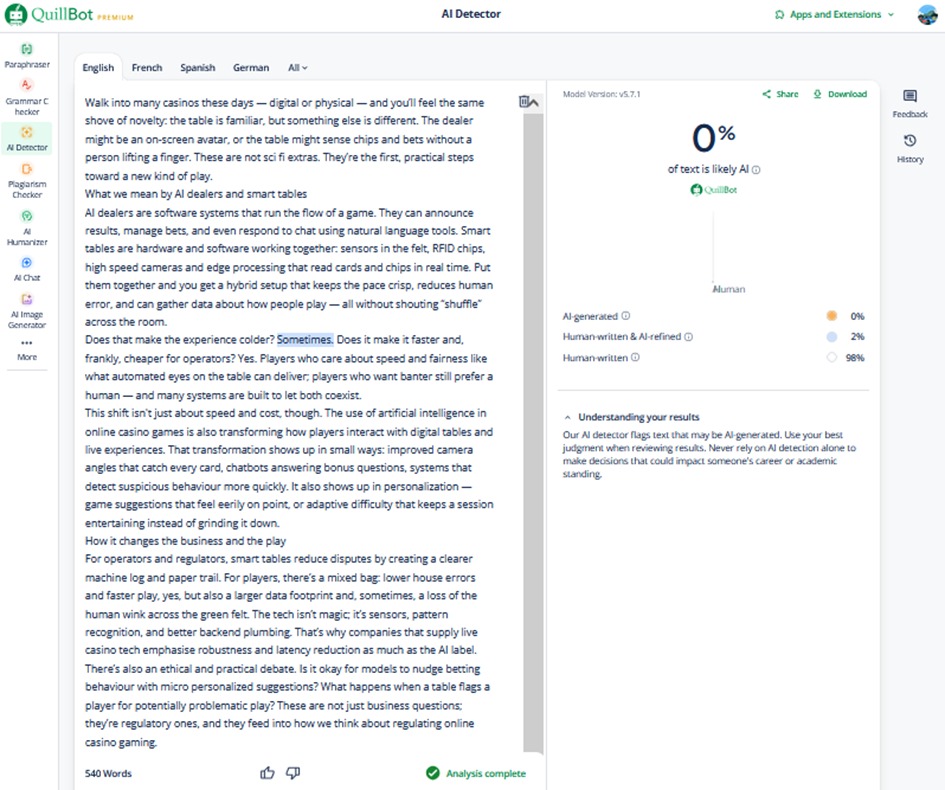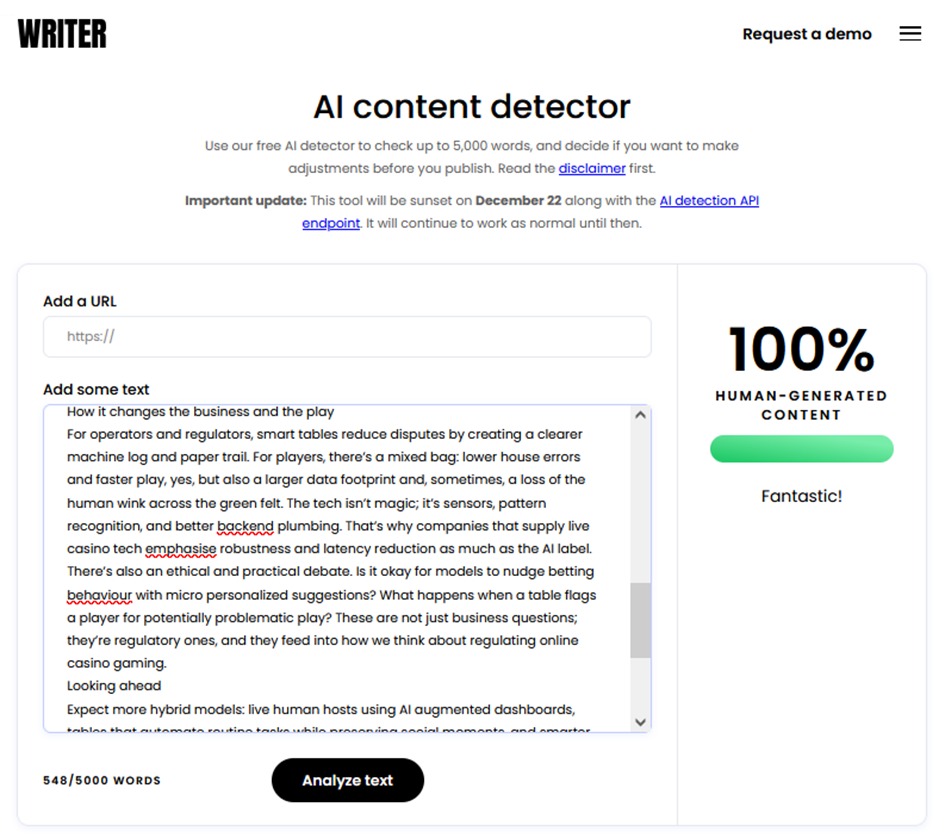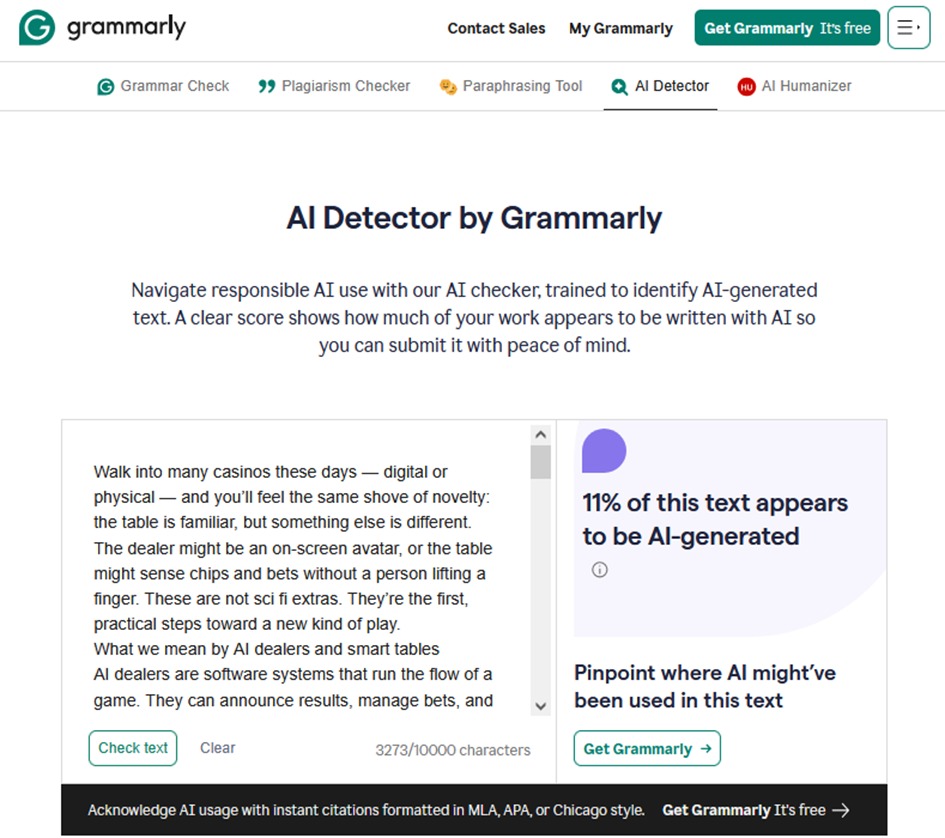Walk into many casinos these days — digital or physical — and you’ll feel the same shove of novelty: the table is familiar, but something else is different. The dealer might be an on-screen avatar, or the table might sense chips and bets without a person lifting a finger. These are not sci‑fi extras. They’re the first, practical steps toward a new kind of play.
What we mean by AI dealers and smart tables
AI dealers are software systems that run the flow of a game. They can announce results, manage bets, and even respond to chat using natural language tools. Smart tables are hardware and software working together: sensors in the felt, RFID chips, high‑speed cameras and edge processing that read cards and chips in real time. Put them together and you get a hybrid setup that keeps the pace crisp, reduces human error, and can gather data about how people play — all without shouting “shuffle” across the room.
Does that make the experience colder? Sometimes. Does it make it faster and, frankly, cheaper for operators? Yes. Players who care about speed and fairness like what automated eyes on the table can deliver; players who want banter still prefer a human — and many systems are built to let both coexist.
This shift isn’t just about speed and cost, though. The use of artificial intelligence in online casino games is also transforming how players interact with digital tables and live experiences. That transformation shows up in small ways: improved camera angles that catch every card, chatbots answering bonus questions, systems that detect suspicious behaviour more quickly. It also shows up in personalization — game suggestions that feel eerily on point, or adaptive difficulty that keeps a session entertaining instead of grinding it down.
How it changes the business and the play
For operators and regulators, smart tables reduce disputes by creating a clearer machine log and paper trail. For players, there’s a mixed bag: lower house errors and faster play, yes, but also a larger data footprint and, sometimes, a loss of the human wink across the green felt. The tech isn’t magic; it’s sensors, pattern recognition, and better backend plumbing. That’s why companies that supply live casino tech emphasise robustness and latency reduction as much as the AI label.
There’s also an ethical and practical debate. Is it okay for models to nudge betting behaviour with micro‑personalized suggestions? What happens when a table flags a player for potentially problematic play? These are not just business questions; they’re regulatory ones, and they feed into how we think about regulating online casino gaming.
Looking ahead
Expect more hybrid models: live human hosts using AI‑augmented dashboards, tables that automate routine tasks while preserving social moments, and smarter fraud detection that reduces abuse. Will the room ever be entirely automated and digital? Maybe in some venues. But the blend — human energy plus machine reliability — seems the likelier future.
If you’ve played on a smart table or chatted with an AI dealer, tell us: did it feel like an upgrade, or did it miss the soul of the game? Drop a comment below, share your opinion, and let’s talk about what should stay human — and what we’re happy to let the machines handle.









